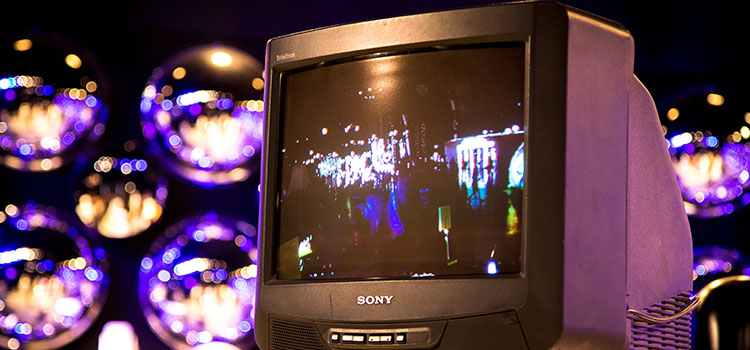Cert Granted in Manhattan Community Access Corp v Halleck

The Supreme Court has been slow to add new cases to its docket, likely waiting for newly-confirmed Justice Brett M. Kavanaugh to come up to speed. On October 12, 2018, the justices did grant one new petition. The case, Manhattan Community Access Corp v. Halleck, involves whether private operators of public access channels are state actors subject to constitutional liability under the First Amendment.
Facts of Manhattan Community Access Corp v. Halleck
The primary issue in the case is whether the First Amendment applies to employees of a non‐profit corporation, designated by the Manhattan Borough President to oversee public access TV channels, who are alleged to have suspended individuals involved in public access TV programming from using the corporation’s facilities. The issue has divided the federal courts of appeal.
Cable operators must obtain franchises from local governments to lay the cable or optical fibers needed to reach subscribers. Cable franchise agreements in New York City require private cable operators to set aside public access channels, which are then operated by private nonprofit entities. The City awarded cable franchises in Manhattan to Time Warner Entertainment Company, L.P. (Time Warner). Section 8.1.1 of the franchise agreement provides that Time Warner must set aside certain cable channels for public access and that these channels must be operated by an “independent, not-for-profit membership corporation” designated by the Manhattan Borough President. Almost 30 years ago, the Manhattan Borough President designated Manhattan Neighborhood Network (MNN) to operate the public access channels set aside in Manhattan.
Deedee Halleck and Jesus Papoleto Melendez alleged that MNN, and three of its employees, violated their First Amendment rights by suspending them from using MNN’s public access channels because of disapproval of the content of a TV program that Halleck had submitted to MNN’s programming department for airing on MNN’s public access channel. The district court dismissed the First Amendment claims against MNN, finding that the plaintiffs had failed to establish that MNN was a state actor subject to constitutional liability under 42 U.S.C.§ 1983. In reaching its decision, the district court acknowledged that the circuit courts that had previously considered the issue (
A divided Second Circuit reversed. It held:
[W]here, as here, federal law authorizes setting aside channels for public access to be ‘the electronic marketplace of ideas,’ state regulation requires cable operators to provide at least one public access channel, a municipal contract requires a cable operator to provide four such channels, and a municipal official has designated a private corporation to run those channels, those channels are public forums.
After determining that public access channels are public forum, the majority then noted
Issues Before the Court in Manhattan Community Access Corp v. Halleck
The Supreme Court has agreed to consider the following questions:
1. Whether the Second Circuit erred in rejecting this Court’s state actor tests and instead creating a per se rule that private operators of public access channels are state actors subject to constitutional liability.
2. Whether the Second Circuit erred in holding — contrary to the Sixth and D.C. Circuits — that private entities operating public access television stations are state actors for constitutional purposes where the state has no control over the private entity’s board or operations. Oral arguments have not yet been scheduled. However, a decision is expected by June 2019.
Previous Articles
SCOTUS Rules State Can’t Immunize Parties from Federal Civil Liability
by DONALD SCARINCI on January 29, 2026
In John Doe v. Dynamic Physical Therapy, LLC, 607 U.S. ____ (2025) the U.S. Supreme Court held that...
Supreme Court to Address Racial Discrimination in Jury Selection
by DONALD SCARINCI onWhile the U.S. Supreme Court has concluded oral arguments for the year, it continues to add cases t...
Supreme Court Halts Deployment of National Guard to Chicago
by DONALD SCARINCI on
In Trump v. Illinois, 607 U.S. ____ (2025), the U.S. Supreme Court refused to stay a district court...
The Amendments
-
Amendment1
- Establishment ClauseFree Exercise Clause
- Freedom of Speech
- Freedoms of Press
- Freedom of Assembly, and Petitition
-
Amendment2
- The Right to Bear Arms
-
Amendment4
- Unreasonable Searches and Seizures
-
Amendment5
- Due Process
- Eminent Domain
- Rights of Criminal Defendants
Preamble to the Bill of Rights
Congress of the United States begun and held at the City of New-York, on Wednesday the fourth of March, one thousand seven hundred and eighty nine.
THE Conventions of a number of the States, having at the time of their adopting the Constitution, expressed a desire, in order to prevent misconstruction or abuse of its powers, that further declaratory and restrictive clauses should be added: And as extending the ground of public confidence in the Government, will best ensure the beneficent ends of its institution.





